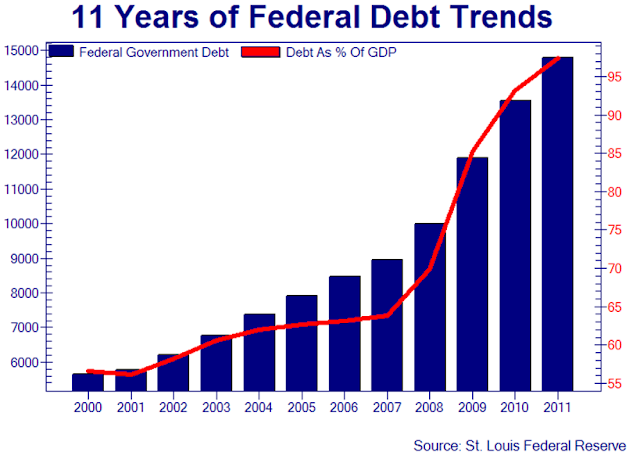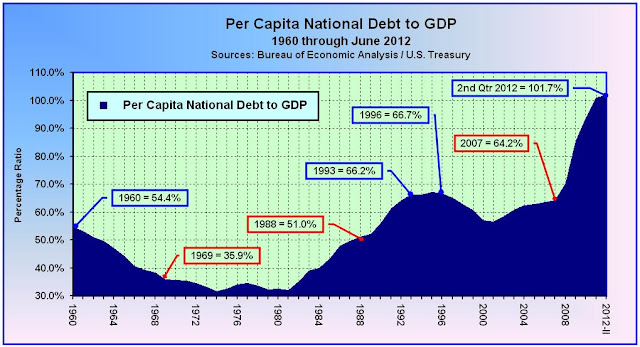


Answer: They have all been referenced as originators of the quote:
Insanity: Doing the same thing over and over again but expecting different results.
Our federal government spends a record amount of money year after year while simultaneously seeing increased poverty rates. I am mystified by the repetitive act of taxing citizens to administer billions of dollars worth of public assistance programs with extremely lackluster results. When will we refuse to accept the status quo of poor outcomes?
If the inefficient use of resources is not a compelling reason to favor private charities, perhaps analyzing outcomes will strike a chord. The outcome reason I favor private charities is in part linked very closely to the economic reason as secondary to increased efficiency, I believe private charities are able to meet a greater number of needs with the same amount of resources.
Private charities exhibit greater freedom to tailor assistance to individuals and their particular situation compared to public assistance programs providing assistance geared towards a generic population in a one-size fits all manner.
Secondary to increased freedom, rather than throwing money at a failing situation, private charities are able to identify and address specific causes of why an individual is in need. Throwing money at failing situations is a soapbox of mine. Do we believe it is a good idea to invest our limited resources on failing systems? Isn't this backwards? Shouldn't we be striving to create an environment where successful entities and systems are rewarded and not failing ones?
Currently there are financial incentives in place if an individual is content with a standard of living provided by wealth redistribution (welfare payments) to remain on government assistance rather than seek to get off. In addition, by the government basing the majority of assistance programs off of income, there is also an incentive for people to participate in tax evasion such as doing business only in cash payments. Such waste, fraud, and abuse of tax evasion and public assistance programs greatly frustrates me.
Currently there are financial incentives in place if an individual is content with a standard of living provided by wealth redistribution (welfare payments) to remain on government assistance rather than seek to get off. In addition, by the government basing the majority of assistance programs off of income, there is also an incentive for people to participate in tax evasion such as doing business only in cash payments. Such waste, fraud, and abuse of tax evasion and public assistance programs greatly frustrates me.
Your support or disapproval regarding throwing resources at failing entities and systems likely flows from your beliefs on how entities end up in need of assistance. If you believe individuals already have the knowledge, skills, and discipline to be successful, and are only in need of assistance due to unforeseeable circumstances, than simply throwing money at the situation is logical. However, if you believe those in need often (clearly not every time) require assistance due to lack of knowledge, skills, and discipline, then you will be more inclined to support teaching and mentoring as opposed to throwing money at a problem with a high potential to repeat itself. Again, one definition of insanity is doing the same thing over again and expecting different results. I fear this is a flaw of our current system.
No significant learning occurs without a significant relationship.
- Dr. James Comer
Dr. James Comer’s research has shown learning and lasting change takes hold more often when a significant relationship exists. I attempted to find Dr. James Comer’s or Ruby Payne’s definition of “significant relationship”, but was surprisingly unsuccessful. Listed below are links to Dr. James Comer and Ruby Payne’s research. If anyone finds how they define significant please email me!
Sources
Regardless of the definition, it is highly improbable the government fits the mold of Dr. Comer’s criteria. As private charities will have the freedom to implement the most effective methods of providing sustainable change, I believe better outcomes will be achieved due to the relational nature of private charities as compared to large, impersonal government interventions.
Sources
Regardless of the definition, it is highly improbable the government fits the mold of Dr. Comer’s criteria. As private charities will have the freedom to implement the most effective methods of providing sustainable change, I believe better outcomes will be achieved due to the relational nature of private charities as compared to large, impersonal government interventions.
Although not as strongly, I believe private charities also have the unique potential to increase the passing on of knowledge, skills, and abilities to friends, family, and future generations. I believe those who have been given much tend to give much themselves. Thus, rather than the benefits of welfare ending with a cash payment to a recipient, I believe those who have been given the resources to no longer require assistance will have a higher probability of passing these skills on to friends, family, and their children and grandchildren. Give a man a fish and you feed him for a day, teach a man to fish and you feed him for a lifetime.
I believe private charities produce superior outcomes due to increased efficiency, greater freedom to implement entity specific assistance, addressing actual causes of need, and a greater passing on of knowledge, skills and abilities to friends, family, and future generations. Based on the graphs above, it appears the current welfare system is not working, and I believe it is insane to continuing perpetuating a failed system while simultaneously expecting different results.
Next Week’s Topic: Book Review I: End the Fed































